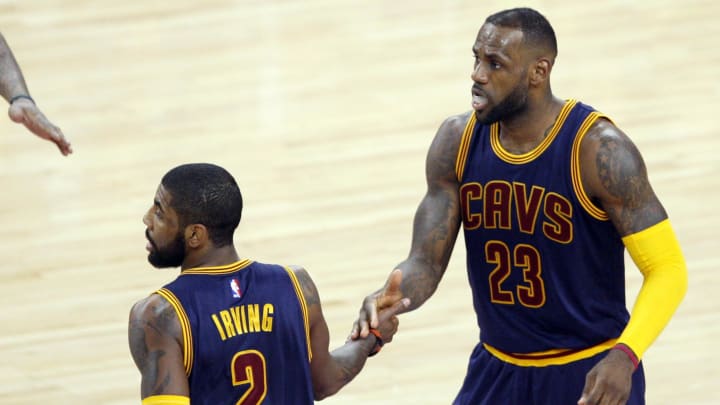Rob Dillingham can be to Anthony Edwards what Kyrie Irving was to LeBron James?

Hey, nobody here at Minnesota Timberwolves On SI is saying Rob Dillingham is the next Kyrie Irving. But what if the Timberwolves made the bold move to trade up in the draft for Dillingham because they believe Dillingham could have an Irving-like impact on Anthony Edwards?
Interesting idea, eh? Well, it's an idea one writer sort of suggested when joining forces with NBA insider Marc Stein on a story about the most fascinating roster moves in the Western Conference this summer. The story featured 11 takes from 11 NBA Substack writers, including Jacob Sutton of JSutt Hoops.
"I still can't get over the sheer gall to trade for Kentucky guard Rob Dillingham on draft night. While it isn't uncharacteristic for a contending team to trade away picks (in this case, a 2031 first and a 2030 swap), it is very uncharacteristic to do so to grab a non-generational rookie," Sutton wrote. "Minnesota believes in Dillingham, so much to make him the — dare I say, to make the not-quite-right comparison — Kyrie-type piece to Anthony Edwards' LeBron."
Sutton flat out said the Kyrie comp probably isn't quite right, but it's an interesting thought and one that makes some sense on the surface. While Dillingham isn't considered a generational talent, he is a lightning-quick point guard with scoring ability.
Like Dillingham, Irving was 19 years old when the Cavaliers drafted him first overall in 2011. He went on to win Rookie of the Year by averaging 18.5 points and 5.4 assists on 46.9/39.9/87.2 shooting splits.
At Duke, in just 11 games, Irving averaged 17.5 points, 3.4 rebounds and 4.3 assists on 52.9/46.9/90.1 shooting splits. At Kentucky, in 32 games, Dillingham averaged 15.2 points, 2.9 assists and 3.9 assists on 47.5/44.4/79.6 shooting splits.
The difference is that Dillingham won't be required (unless MIke Conley gets injured) to do a lot of the heavy lifting as a rookie. Irving was taking 14-15 shots per game as a rookie in 2011-12 on a Cavs team that won 21 games and didn't have LeBron James.
Remember, LeBron didn't return to Cleveland until 2014, at which point he and Irving guided the Cavs to three straight appearances in the NBA Finals, winning it all in 2015-16. Irving, who was Robin to LeBron's Batman, was traded to Boston after the 2016-17 season.
Sutton is probably right that Minnesota really ––like really, really–– likes Dillingham as a potential star if they were willing to move up 19 spots to get him. But then again, giving up a first-round pick seven years in the future for a chance to see what Dillingham becomes doesn't seem like a big risk.
